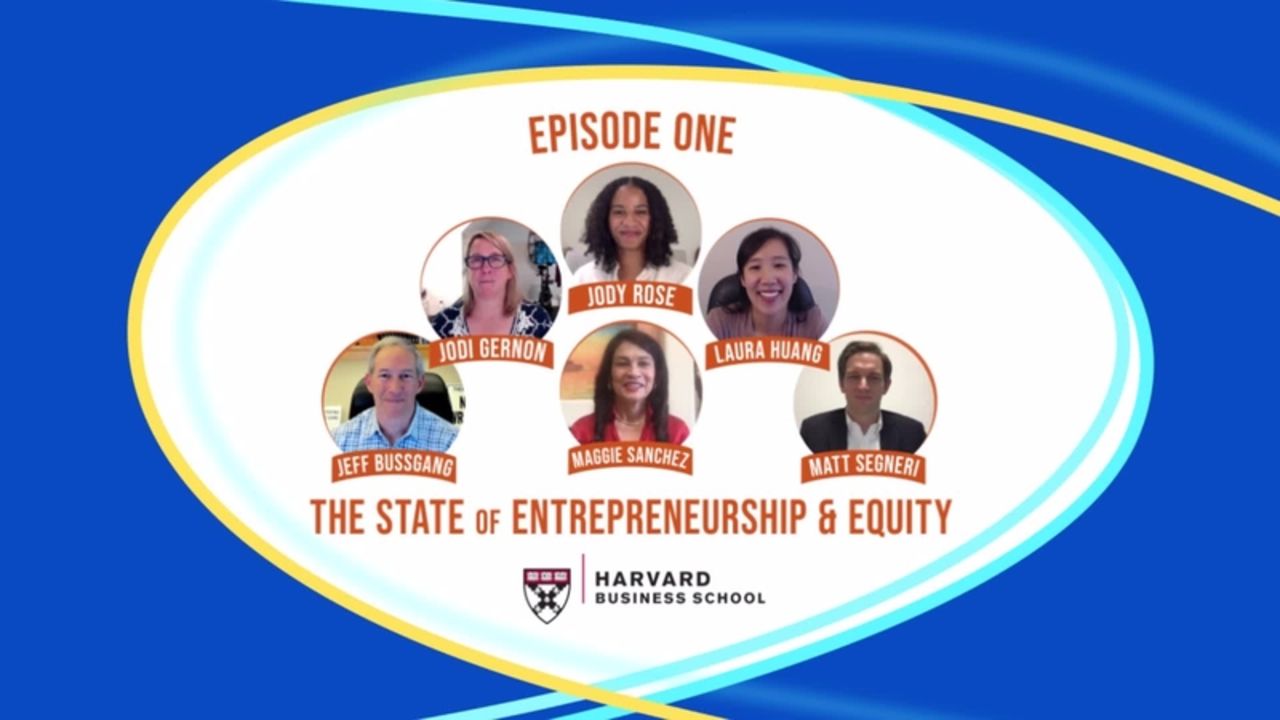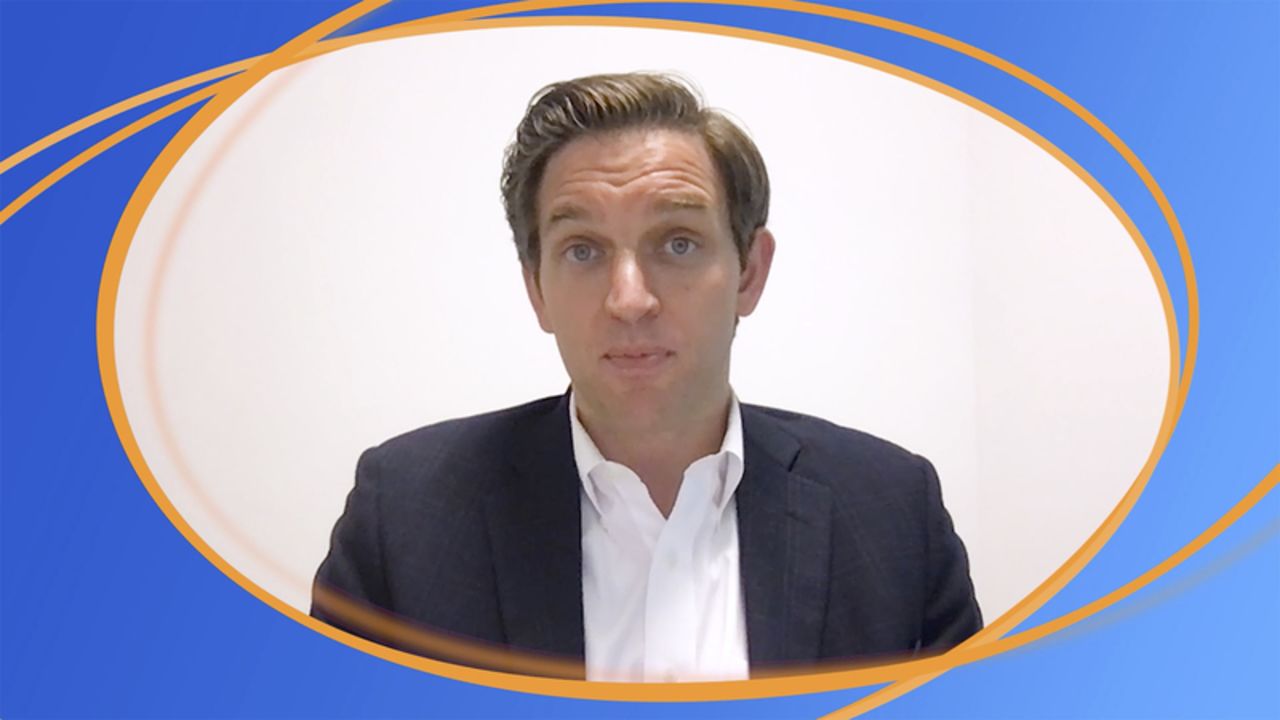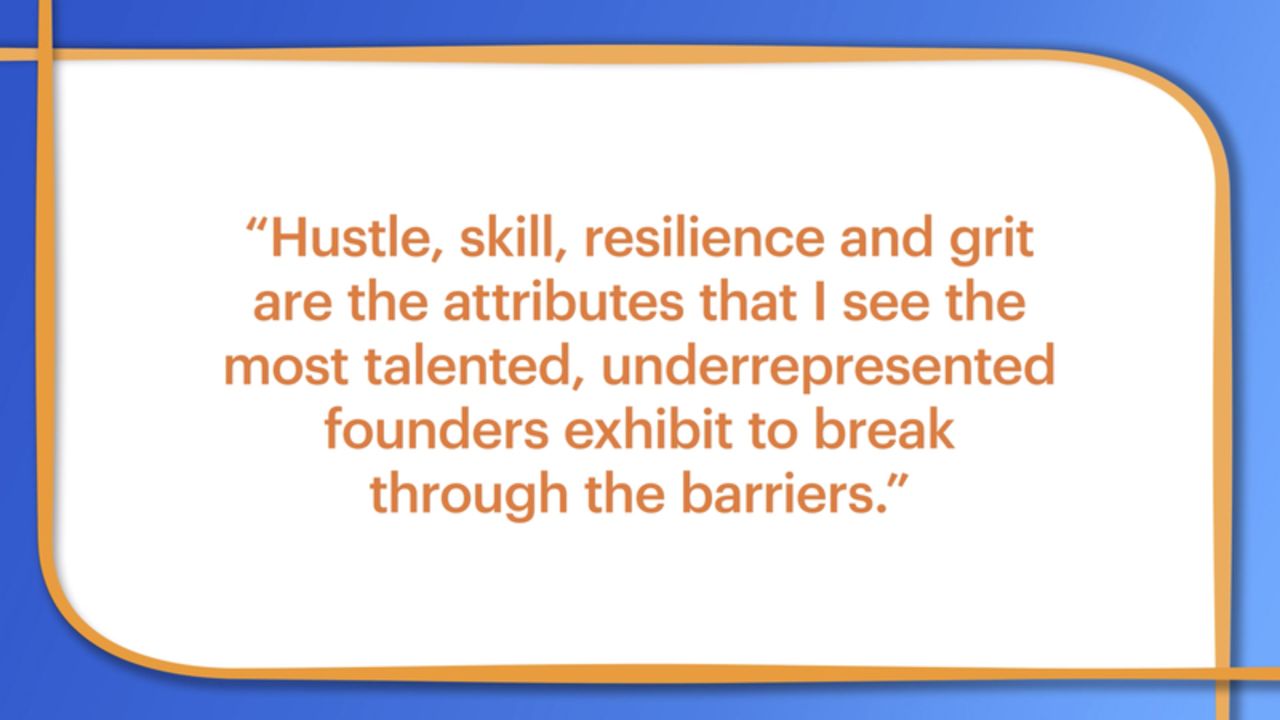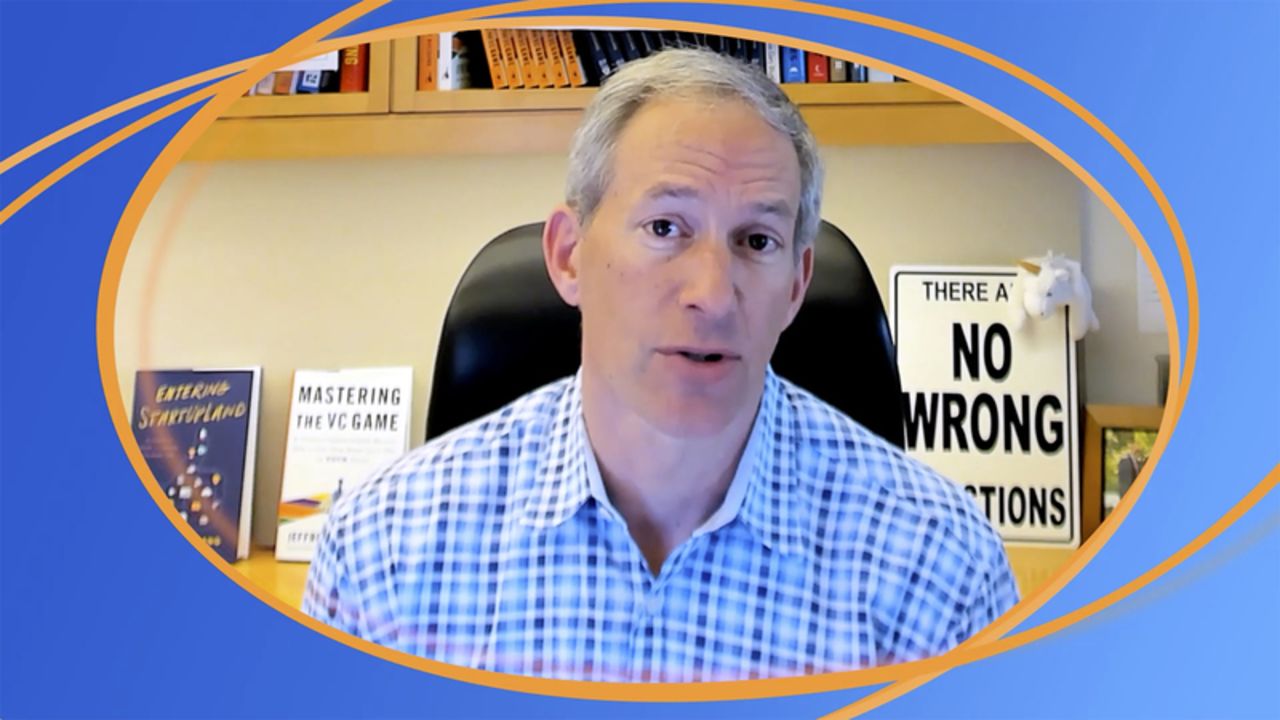Pathways to Inclusive Entrepreneurship
Episode 1: The State of Inclusive Entrepreneurship
Episode 1: The State of Inclusive Entrepreneurship
Clips by Topic
I. Drivers of Disparity: Systemic Bias
II. Drivers of Disparity: Lack of Diversity Among Capital Allocators
III. Roadblocks to Inclusive Entrepreneurship: Lack of Networks, Relationships & Mentors
IV. Qualities and characteristics that help Founders Break Through: Resilience and Grit
V. Qualities and characteristics that help Founders breakthrough: Boldness to Carve Out an Entrepreneurial Path
VI. Ways to Foster Equitable Ecosystems: Purposeful Commitment
VII. Ways to Foster Equitable Ecosystems: More Diversity Among Capital Allocators
VIII. Overcoming Adversity in the Ecosystem: Turning Adversity into Advantage
Institutional Resources
- HBS Rock Center
- Harvard Innovation Labs
- Edge: Turning Adversity into Advantage (Laura Huang)
- Hack Diversity
Related Articles
Transcript
i. Drivers of Disparity: Systemic Bias
Maggie Sanchez: Welcome to our first episode, The State of Entrepreneurship & Equity. My name is Maggie Sanchez, your host for this exciting digital series, Pathways to Inclusive Entrepreneurship. We're going to start with access to capital, the Holy Grail for any founder. From research, we know that only a fraction of capital goes to female founders and founders of color. What are the main drivers of that disparity?
Jody Rose: When you zoom out and look at the big gap that we have around founders who are people of color, I think you need to look at some of the other data as to why that is, right? And so if we don't have enough people with access to capital, access to networks that are in the institutions and the places where investors are actually recruiting from, if you will, then we're never going to change that number.
Laura Huang: There are really a couple of different factors that are operating all at the same time. There are certainly factors around the business itself, the financials, the hard data around an opportunity. But there are also behavioral and perceptual factors that impact the entrepreneurial process, who gets funding, and so on and so forth. And what I find is actually the two interact with each other.
And so it's difficult because we don't always understand what's happening because we may think that it's based on the size of the opportunity or how innovative a product is. What we're realizing is that these subtle factors, these signals, cues, perceptions, are really leading to some people being underestimated in entrepreneurship and in the resource acquisition process.
Jeff Bussgang: There's flat out biases in the system, and those biases can be largely unconscious. They don't need to be the extreme, crass discrimination. They can be just simple pattern recognition discrimination. If I said to you, think of a computer software founder, you might have an image of someone in a hoodie who dropped out of Harvard's computer science program or MIT's program because that's the image we have of technical founders. And investors are pattern recognition machines. They make very quick snap judgments based on their history, based on their cultural context, based on their biases.
Matt Segneri: What I really want folks to do is get a lot more curious, curious about their own biases, curious about the context in communities in which they don't have as much personal experience but where there's a huge wealth of untapped opportunity, thinking outside the bubble of the institutions they've been part of, of the venture communities they're already in of the founders who they may tend to fund on a serial basis.
Because often, the capital does accrue to folks who've had prior successes. And so as it relates to female founders and founders of color, in order to drive the C-change that we need to see in the community to at scale support all this amazing untapped array of talent, you need the signature firms who've been around for decades to meaningfully change their theses on who deserves support.
ii. Drivers of Disparity: Lack of Diversity Among Capital Allocators
Jeff Bussgang: I would love to see the entire capital stack be more diverse. I would love to see more limited partners who control ultimately the flow of capital into the ecosystem to be more diverse. Right now, if you look at the total of assets under management across mutual funds, real estate funds, hedge funds, it's roughly only 1% in the hands of minority owners.
There has been a history of a lack of capital allocators who are from these disparate, underrepresented groups. Most venture capitalists, most private equity executives are white men. And you, therefore, have a group of people who have their own networks; their own, as I said, biases; but also, their own maybe cultural and social developmental platforms and networks that lead to them investing in people who they trust and people who they know from school, from past jobs, from social networks. And that's another self-reinforcing circle.
Jodi Gernon: The one other area that I would add is I think LPs, which are the licensed partners who invest in these firms, need to start pressuring the VC firms into bringing more diverse leadership on, if nothing else because it affects the bottom line in a very positive way. And I do think that there are some that are doing that.
I also do recognize there's a lot of LPs that will not invest in first-time funds. And unfortunately, that's how a lot of women and people of color get their first chance to actually make investment decisions, by going and actually starting their own fund. And if they're closed to a lot of LPs who won't do anything, then that's a real challenge.
iii. Roadblocks to Inclusive Entrepreneurship: Lack of Networks, Relationships & Mentors
Maggie Sanchez: With the spotlight on underestimated entrepreneurs, female founders, founders of color, what are some of the unique roadblocks that get in the way of access to entrepreneurship?
Jody Rose: Venture capital is so focused on building relationships and it's relationship-driven. And so you'll often hear advice given to entrepreneurs that say, don't do a cold outreach. If you're looking to get in front of a VC, tap someone you know. Well, if you don't have that network of people that are connected in the startup community or to the VC community and your network is very limited, then you don't have access to getting in front of the people that can actually invest in your business. I go back to the network piece. For underrepresented founders, whether you be female or a person of color, the biggest challenge that I consistently hear is, I don't have the network and I don't have the access.
Matt Segneri: The challenges are across a number of different dimensions. It's actually having, in their course materials, in their personal lives and examples, those near-peers or folks they've seen who navigated this path. And I think some of the great work that HBS is doing around building in a more diverse and inclusive body of cases so that the types of leaders and entrepreneurs we're holding up-- the notion that, if you can see it, you can be it.
But it's more important just to show the full array of folks who are of individuals and leaders who are building these ventures. It's thinking about the types of mentors, the types of experts, the speakers, the folks we bring in. Because in many ways, who we're elevating as these exemplars of entrepreneurship has a huge impact on who were the models and examples we're choosing to highlight.
iv. Qualities and characteristics that help Founders breakthrough: Resilience and Grit
Maggie Sanchez: What are some of the unique qualities and characteristics that help underestimated entrepreneurs breakthrough?
Jeff Bussgang: Underrepresented founders who are able to break through and be successful exhibit a tremendous amount of resilience and grit. They develop that resilience and grit early in their careers. They didn't have anything handed to them on a platter. Nothing came easy. And so they developed these muscles and these capabilities. And when given an opportunity to exercise those muscles in a environment that rewards them for these skills developed over many years of overcoming obstacles, they can be incredibly successful and powerful founders.
I wrote a case about one such team, the software company Squire, which is a software platform for barbershops founded by two Black professionals who underwent an enormous amount of difficulty and hardship to get the venture off the ground. They underwent a number of these incredible twists and turns in order to achieve ultimately a tremendous amount of success. Today, that company is worth most recently $750 million. So that attribute of hustle, skill, resilience, and grit are the attributes that I see really the most talented underrepresented founders exhibit to break through the barriers.
v. Qualities and characteristics that help Founders breakthrough: Boldness to Carve Out an Entrepreneurial Path
Jodi Gernon: Every time I ask a VC who's investing in a first-time founder, I ask them, what is it about that founder? And typically, what they say is they like to invest in founders that have basically carved their own path and not one that went to the right schools and did the right things and did the right internships and went to the right post-grad jobs and then went to the right business School and did all the things that it said on the list to do. I think a lot of females and underrepresented founders have really had to do that to get to where they are. And so those skill sets alone will make them excellent leaders in a company.
vi. Ways to Foster Equitable Ecosystems: Purposeful Commitment
Maggie Sanchez: What are some ways to foster more equitable entrepreneurial ecosystems?
This is going to be a long game. It's going to take time. And I think what we need to start seeing from investors is, what is the time commitment? I would also say, are there internal metrics by which they're being measured? If you don't track it-- if you don't measure it, how do you track it? So I would love to see funds really double down on how they're holding GPs and other partners or investors within the fund accountable to making sure they're expanding their networks.
Laura Huang: The ecosystem is so large that I think the important piece is not necessarily where to start, but it's to be able to do something fully. So rather than doing 10 things 10% of the way, it's doing 1 thing 100% of the way.
vii. Ways to Foster Equitable Ecosystems: More Diversity Among Capital Allocators
Jodi Gernon: I think my biggest call to action really has to do around diversifying the decision-makers who hold the purse strings. And that's both getting the LPs to do that but also for the venture capitalists to understand how strong and how big of a benefit that this is.
Jeff Bussgang: There are a lot of risks in this business, and you want to mitigate risks. And, therefore, I think, if we had more women who were capital allocators, if we had more Black and Latinx professionals who were capital allocators, we would see more capital going into communities that are today underrepresented.
viii. Overcoming Adversity in the Ecosystem: Turning Adversity into Advantage
Maggie Sanchez: What are some ways to expand access to entrepreneurship for everyone?
Laura Huang: What do we do about all these disparities? What do we do about the fact that there's not a level playing field, that there might be this myth of meritocracy? And so in my recent book, which is entitled Edge: Turning Adversity Into an Advantage, it's about, how do we gain an edge? How do individuals who might be underestimated or face these disparities trying to gain an edge for themselves? What I find is that there are lots of perceptions that are sort of floating out there, right?
So there might be a perception that someone's really ambitious and conscientious and resourceful, and there might be other negative perceptions floating out there that this person is really arrogant and shallow, for example. And what I find is that these perceptions cluster together in such a way that I could take somebody who was being seen as conscientious and ambitious and subtly adjust circumstances or the ways that they present themselves or the ways that they present their businesses such that now they're no longer being seen as ambitious and conscientious and instead they're being flipped and being seen as shallow and aggressive, for example.
But by the same token, we can do the reverse. We can take someone who's being seen as shallow and aggressive and flip it such that they're now being seen as the positive manifestations of that, so that they're now being seen as ambitious and conscientious and hardworking, for example. And so there's a lot of different techniques and strategies and tactics that we can do to coach people and help people navigate in such a way that they can flip that adversity to their advantage.
Jodi Gernon: The Rock Center was founded in 2003 to support founders, builders or joiners, and investors in high-growth ventures. So our whole goal here at HBS is to really support our students. Whether they be Black or white or male or female or LGBTQ, we're here to support founders as they try to develop their new ideas that are going to solve today's problems.
Matt Segneri: For us at the Harvard Innovation Labs, we're trying to think about it in three ways, as folks are coming into our orbit, as they're here, and as they leave. And on the front end, we're trying to make it as open and inclusive an environment as possible to lower the barriers to entry for entrepreneurship and make it a place where any Harvard student from any Harvard School at any point in their journey can come into the space. And there's certainly some psychological barriers to folks feeling like they are meant to be an entrepreneur, that they have the entrepreneurial spirit.
So we're working in earnest to create an environment where everyone feels like that's possible. I think, when they're here in part of the venture program or another of our offerings, we're trying to ensure that they have access and entree to the specific things that they need for their venture but also that they feel like part of a bigger whole, that it's a psychologically safe space that they can have entrepreneurship more like a team sport but also that they're finding folks who are working in the same industries they care about, who are working both on or across many different lines of difference.
And then as they go out into the world, recognizing all the inequities that exist when it comes to finding capital, finding mentorship, navigating that especially fragile early path, we want to ensure that, knowing what we know about the barriers to entry for women founders, for founders of color, for veterans from so many different entrepreneurs, that we're a place and space that helps them go out into the world, build things that matter, and do that in a way that overcomes some of those inherent inequities that have been systemic and longstanding.
Thank you to all of our luminaries today.
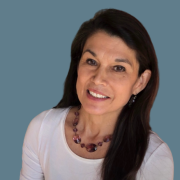
Maggie Sanchez
Host
Host

Jody Rose

Matt Segneri
Executive Director, Harvard Innovation Lab
Executive Director, Harvard Innovation Lab

Jeff Bussgang
Senior Lecturer
Senior Lecturer

Jodi Gernon
Director, HBS Rock Center
Director, HBS Rock Center


